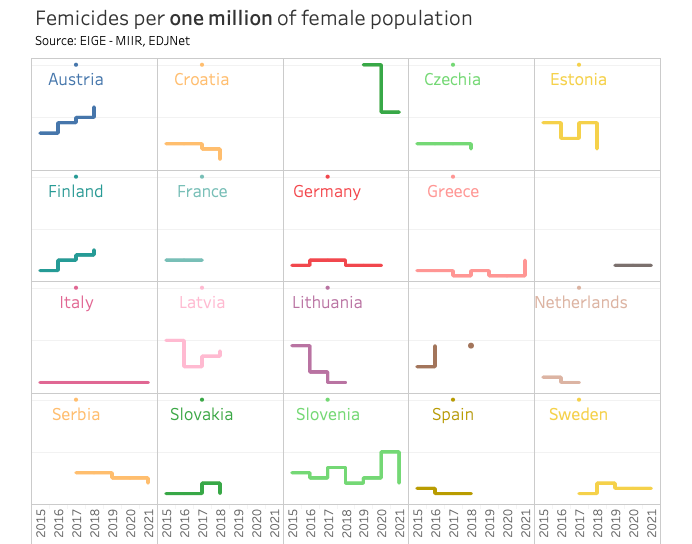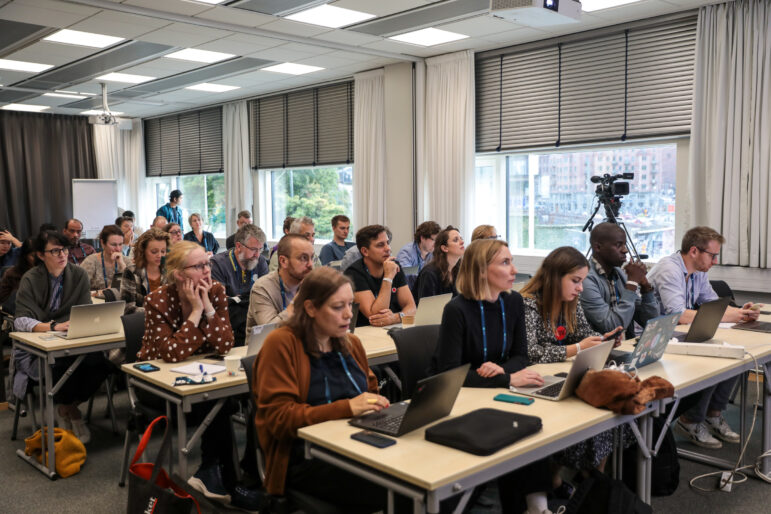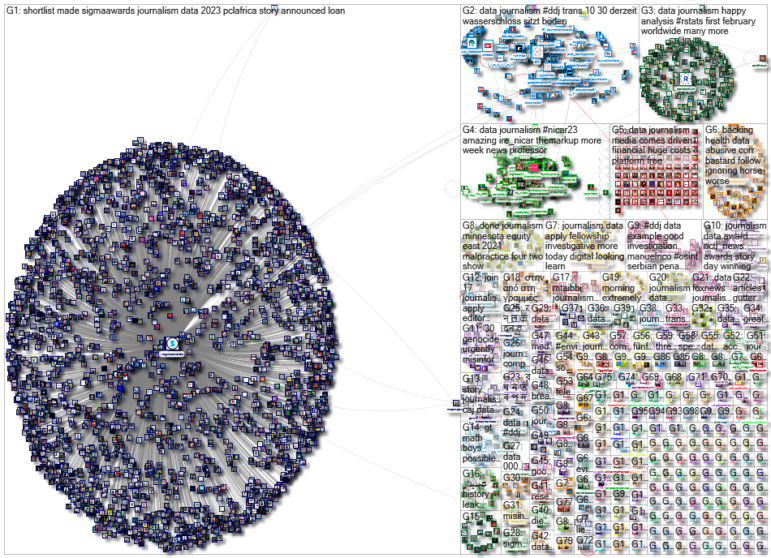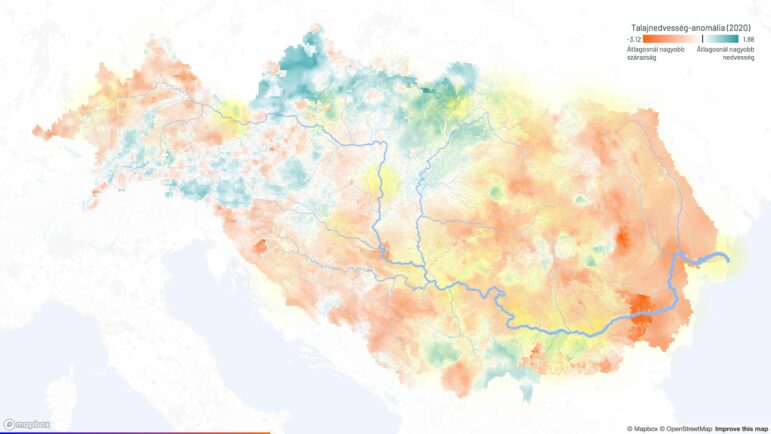

Image: Screenshot, European Data Journalism Project
Data Journalism Top 10: Algorithm Bias, Mapping Femicide, India’s Deadly Cold, Bisexual Superman
Read this article in

Image: Screenshot, European Data Journalism Network
There are hidden dangers to governments adopting algorithmic systems to inform decision-making and forecasting in the public sector, as evident in an investigation by WIRED and Lighthouse Reports. Our weekly NodeXL and human curation of the most popular data journalism stories on Twitter also features a cross-border investigation into femicide across Europe, a multimedia project on missing migrants from Cuba, and data dives into rental market issues in Spain and Scotland.
Algorithmic Bias
Every year thousands of welfare recipients in the Dutch city of Rotterdam are put under investigation on suspicion of committing benefits fraud. But this detailed investigation by Lighthouse Reports and WIRED used freedom of information laws to obtain the city’s fraud algorithm — and the data behind it — finding that until 2021 the city was using a system that “discriminates based on ethnicity and gender.” According to their report’s analysis, switching just a few key identity markers — such as age, gender, and if you have children — can have a significant impact on someone’s risk ranking, triggering a potentially invasive fraud investigation. Rotterdam is just one of many cities using algorithms to interrogate welfare recipients and was chosen because reporters were given “unprecedented access” to the city’s machine learning model. Read more about the detailed methodology for this investigation here.
Femicide Across Europe
For this cross-border investigation into violence against women, the Mediterranean Institute for Investigative Reporting, the European Data Journalism Network, and more than a dozen partner newsrooms collaborated to tackle a data gap in femicide across Europe. Among the cases, they found a Greek man who stabbed his wife to death after she asked for a divorce, and a woman killed a few hours after filing a police report against her partner. The team found that no official data on this issue has been published at an EU level since 2018. So they tracked down national data to “generate the most up-to-date map of violence against women in Europe today.” Looking in particular at the COVID-19 pandemic, reporters found Greece, Slovenia, Germany, and Italy saw “a significant increase in femicides.”
Missing Cuban Migrants
According to various indicators, Cuba is in crisis, with an economic slowdown and a political situation driving the greatest mass exodus in 60 years. This project — from multimedia independent outlet elTOQUE and Colectivo + voces, a collective of journalists, bloggers, and photographers — is an attempt to document the names and stories of the 104 people who have died trying to reach the United States since 2021, and some of the 349 who have disappeared. The team spent a year creating a database using news articles, official reports, and social media posts, and designed maps to show the most common migration routes.
Deadly Temperatures in India
Last summer, India experienced a record-breaking heatwave, with conditions so extreme that the story made headlines worldwide. In this data story, Mansi Vijay from IndiaSpend, a nonprofit outlet that uses data to report on public interest stories, interrogates a lesser-known but even more deadly problem: cold waves. According to one study, 655,000 annual deaths are linked to abnormally cold temperatures, while the number linked to high temperatures is below 84,000. The story maps deaths due to cold exposure in different parts of the country, charts the percentage of the population vulnerable to hot versus cold snaps, and interrogates why government departments have different statistics on the problem.
A Blitz of Russian Lawmaking
According to the data over the past five years, 2022 was a record year for the number of laws passed in Russia. Current Time TV, a Russian-language TV channel based in Prague, examined the type of laws passed and analyzed the length of time it took from submission of a bill to its final approval as legislation. It found that, since January 2022, every bill introduced in the State Duma, the lower house of the Federal Assembly of Russia, had been passed. It also highlighted that the 10 laws adopted the fastest last year concerned the territories of Ukraine occupied by Russia. There were even cases where bills took only a single day from the time they were submitted to being published as official laws of the country.
Disrepair in Rental Homes
The Courier looked into the state of disrepair of rental homes in Dundee, a coastal city in Scotland. Over the past five years, it found an increasing number of tenants complaining about the poor conditions of their rented abodes, with some resorting to filing grievances at tribunals to force their landlords to make repairs. The newspaper created a database of these tribunal cases and mapped the properties with such disputes. It also dug into how a landlord accreditation system set up by the Dundee city council failed to ensure accountability.
Calculating Electric vs. Gas Travel
Taking a road trip through California and can’t decide whether to drive an electric or gas vehicle? The San Francisco Chronicle has got you covered with this road trip planner tool. Readers can select one of four types of electric vehicles and input their starting and final destinations to receive an estimate of the time the journey will take and the charging costs incurred compared to that of a gas vehicle.
Rising Rents in Spain
In the last five years, rental prices in Spain have risen more than the average income of its people, and three times more than the rate of inflation. El País, a news daily, created a map for readers to consult how much rental prices have increased in each street or municipality since 2016.
Koreans’ Height Boost
Humans around the world have grown taller over the last century, adding about 7 centimeters (3 inches) on average. But check out those South Koreans: women there added an astounding 20 centimeters (8 inches) on average while men grew 15 cm (6 inches). In this video explainer, Vox dissects the reasons behind this phenomenon — economic growth and improved nutrition — and examined the stark difference in height between South Koreans and North Koreans.
https://twitter.com/alv9n/status/1631668661852184577
Sigma Awards Shortlist
The Sigma Awards celebrate the best in data journalism worldwide. This year, out of 638 entries from 80 countries, jurors have pulled together a shortlist of 60 finalists featuring work published in 2022. Among them: projects tackling extreme heat, conflict, femicide, pollution, border conflicts, and dirty rivers. It’s a diverse, global list with nominated stories about Russia, Brazil, Iraq, Uruguay, the US, and even outer space. A number of GIJN members have work nominated, or are featured as a team, including Germany’s CORRECTIV, The Netherlands’ Lighthouse Reports, and ProPublica in the US. Winners will be announced on March 17.
Bonus: NICAR23 Tip Sheets
The NICAR 2023 conference, the largest annual gathering of data journalists, just wrapped up last week in Nashville, Tennessee. From Excel to Python, and mapping to algorithm bias, there’s lots to learn from this online trove of tip sheets and resources from the event.
Bonus: TikTok Data on Kal-El
For a nice end to your work week, check out how The Washington Post’s TikTok debunked claims by conservative outlets that comic book sales about Jon Kent, a bisexual Superman, were bad. Chris Vazquez, The Post’s associate TikTok producer, examined the data to get to the bottom of this, and explained how it could be manipulated and presented to mislead readers.
Thanks again to Marc Smith and Harald Meier of Connected Action for gathering the links and graphing them. GIJN’s Data Journalism Top 10 list is curated weekly.
 Eunice Au is GIJN’s global team manager based in Budapest, Hungary. Previously, she was a Malaysia correspondent for Singapore’s The Straits Times, and a journalist at Malaysia’s New Straits Times. She has also written for The Sun, Malaysian Today, and Madam Chair.
Eunice Au is GIJN’s global team manager based in Budapest, Hungary. Previously, she was a Malaysia correspondent for Singapore’s The Straits Times, and a journalist at Malaysia’s New Straits Times. She has also written for The Sun, Malaysian Today, and Madam Chair.
 Laura Dixon is an associate editor at GIJN and a freelance journalist from the UK. She has reported from Colombia, the US, and Mexico, and her work has been published by The Times, The Washington Post, and The Atlantic. She has received fellowships from the IWMF and the Pulitzer Center.
Laura Dixon is an associate editor at GIJN and a freelance journalist from the UK. She has reported from Colombia, the US, and Mexico, and her work has been published by The Times, The Washington Post, and The Atlantic. She has received fellowships from the IWMF and the Pulitzer Center.










